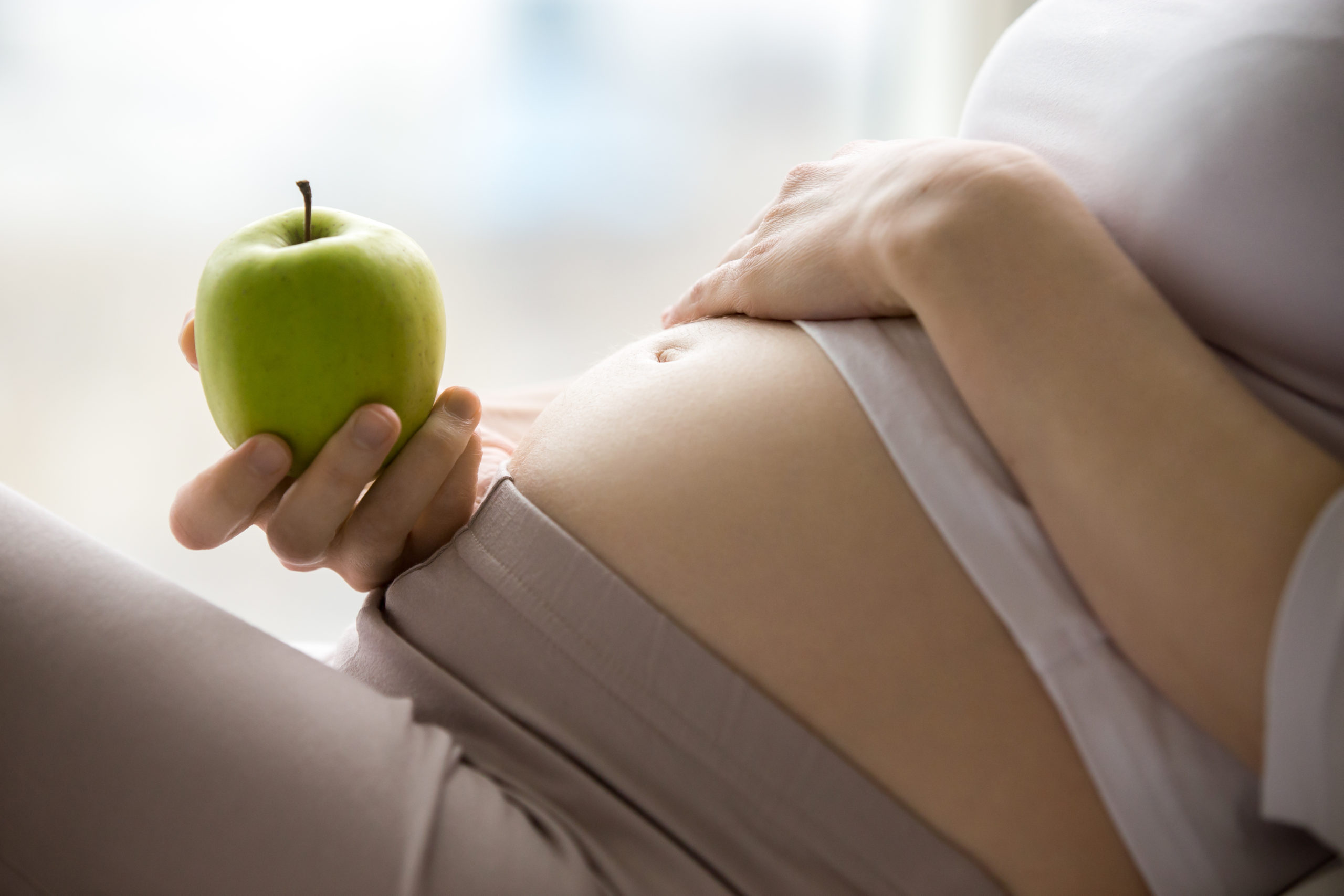
Nutritional advice, planning pregnancy, wellness

What are the prerequisites for good pregnancy care?
Pregnancy care remains one of the most significant topics in obstetrics and paediatrics. It may include healthy lifestyle choices such as taking prenatal vitamins and seeking the right consultation for pregnancy and wellness. Prenatal care is all about assuring nutrition that helps your body develop the right setup. Proteins, carbohydrates, healthy fats, minerals and vitamins help your body prevent exhaustion in various ways.
Prenatal nutrition:
Evidence suggests that a high body mass index (BMI) before pregnancy, poor nutrition and excessive weight gain hamper the overall quality of pregnancy and childbirth. It may even contribute to non-communicable diseases. Both underweight and overweight new-borns may struggle with metabolic diseases in their lifetime. The mother's health before pregnancy is affected by genetics and nutrition. These are the two main factors. The presence of congenital issues and exposure to occupational toxins are the other factors affecting the overall quality of pregnancy.
Pre-pregnancy weight influences your baby's birth weight. Underweight women may give birth to small babies. Overweight women may be at a higher risk of high blood pressure or gestational diabetes. Consult your healthcare provider to find out more about healthy weight gain or loss toward healthy childbirth.
Below are the basic guidelines:
- Avoid artificial sweeteners and drinks, sweets, cakes, biscuits and marmalades.
- Eat more unsaturated fats like nuts, healthy seeds, avocados.
- Lentils, beans, fruits and vegetables are the right suggestions.
- Avoid saturated or bad fats. Bad fats may further create problems like bad cholesterol.
- Fried foods, pastries, biscuits, cakes and pies are the foods to avoid.
- Wholegrain high fibre foods are essential to ensure health throughout all the trimesters.
- Consider joining a pregnancy exercise class.
- Stay updated with every instruction given by your dietician/obstetrician.
- Yoga is one of the healthy ways to live. It's helpful especially when you start preparing your body for a healthy pregnancy.
Pregnancy tips on safety and nutrition:
Prenatal nutrition assures that the pregnancy is well-prepared and well-defined. Weight in proportion to height and dietary regimen are the two factors determining foetal health. Find out how many additional calories you may need in pregnancy. The concept called 'eat for two' may be a fact for some but a myth for many. A gradual rise in calories alongside the baby's development will help you. If it's your first trimester, you may need 0 extra calories. If you are in the second trimester, you may need up to 300-350 extra calories a day. If you are in the third trimester, you may need 450 extra calories.
Follow the guidelines and details given below:
- DHA:
DHA is essential for your baby's brain development and growth. DHA is known to help you maintain a healthy pregnancy all along.
- Vitamin C:
Vitamin C helps in the development of healing abilities. Vitamin C helps your baby develop teeth and bones.
- Fat:
Fat is the energy we need. It's one of the essentials that aid the development of your baby's organs and placenta. Polyunsaturated fatty acids (PUFAs) aid the growth of your baby's nervous system, retina and brain.
- Calcium:
Calcium is one of the essentials in the healthy growth of your baby's bones, teeth, muscles, nerve functions and heart functions. Calcium controls the overall inflow of fluid.
- Iodine:
Iodine is important for a healthy brain and a good nervous system. Substantial intake of iodine helps the baby move, feel and think appropriately.
- Protein:
Protein is helpful in the development of your baby's tissue. It aids the growth of your baby's breast and uterine tissue, muscles, and blood in pregnancy.
- Iron:
Iron is essential in the manufacture of haemoglobin. Haemoglobin is a protein present in red blood cells that carries oxygen to your tissues. The need to supply the blood adequately to the baby rises in pregnancy. The amount of blood in the body increases in pregnancy.
- Folic Acid:
Folic acid plays a crucial role in making blood during pregnancy. Folic acid is essential for the baby's brain and spine. Folic acid is also a key element when it comes to preventing neural tube defects (NTD) in the baby. An adequate supply of folic acid helps prevent 70% of all NTDs. All these essentials contribute to a healthy pregnancy and wellness.?
Daily Nutrient Requirements:
- DHA - 200 mg/day
- Iodine - 220 mcg/day
- Vitamin C - 85mg/day
- Vitamin D - 600 IU/day
- Folic Acid - 60 mcg/day
- Iron - 27 mg/day
- Protein - 75-100 g /day
- Calcium - 1000 mg/day
Do you develop cravings?
The actual cause of food cravings in pregnancy isn't well established. The majority of the researches suggest that hormonal changes in pregnancy may lead to cravings. Hormonal changes may make you more sensitive than ever to certain tastes and smells. It all ultimately leads to food cravings. Most obstetricians or midwives may suggest you satisfy your food cravings. It's a good habit as long as the food you consume is nutritious.
How essential is dental care in pregnancy?
A poor diet is likely to interfere with dental health. You should control your dental health and uplift it with:
- Regular dental treatments if and as needed
- Regular dental checks
- Floss
- Regular cleanliness dedicated to the overall dental upkeep.
How about your eating habits?
If you have a chronic health condition to manage, you may be on a restricted diet. Personal beliefs are also a reason why some women restrict their eating habits. If you are planning to conceive, start with a consultation with your obstetrician/GP. Some women may have an eating disorder like anorexia nervosa or bulimia. It's important to design a proper diet in such cases. Some health forums are also available nowadays online. You may consider following the health forums. However, always ask your GP or obstetrician about what suits your overall pre-pregnancy health.
Start practising food hygiene:
Food poisons are risky for everyone. Some foodborne illnesses are dangerous for your baby's health even before you conceive.
Related Blogs

Understanding Gestational Diabetes: Insights from Dr Shruthi Kalagara
Read More
Urinary Tract Infection (UTI) in Pregnancy
Read More
Early Pregnancy Care for New Pregnant Women: Expert Advice | Motherhood Hospitals
Read More
Body Positivity Tips Post C Section (Cesarean Delivery)
Read More
Vaginoplasty: Procedure, Cost, Risks & Benefits, Recovery
Read More
The Digital Dilemma: Exploring the Medical Implications of Technology on Child Development
Read More
How To Relieve Menstrual Cramps? - 8 Simple Tips
Read More
Benefits of Consuming Folic Acid Tablets For Pregnancy/During Pregnancy
Read More
Navigating Radiology: Ensuring Safe Imaging During Pregnancy
Read More
Navigating Radiological Tests During Pregnancy: Ensuring Safety for Mother and Child
Read MoreRequest A Call Back
Leave a Comment:
View Comments
Previous
Next
HELLO,
Stay update don our latest packages, offer, news, new launches, and more. Enter your email to subscribe to our news letter


 Toll Free Number
Toll Free Number








No comment yet, add your voice below!